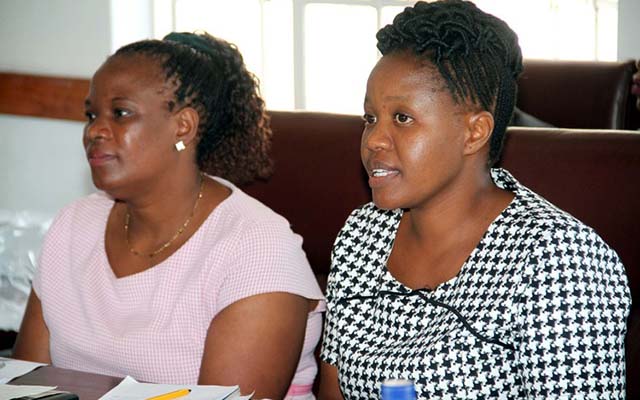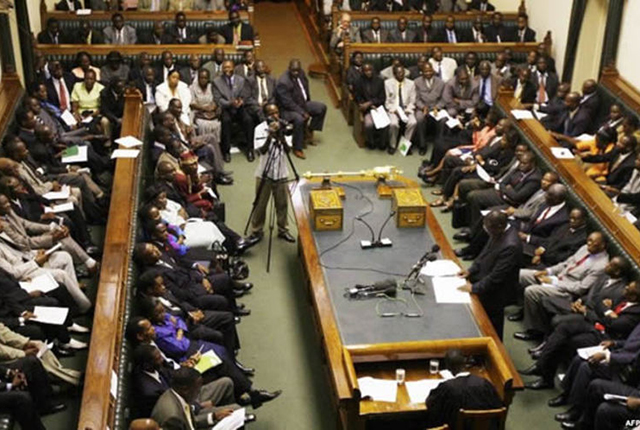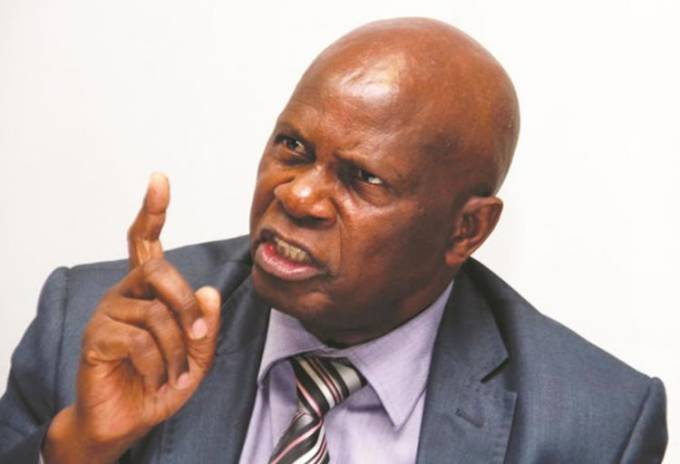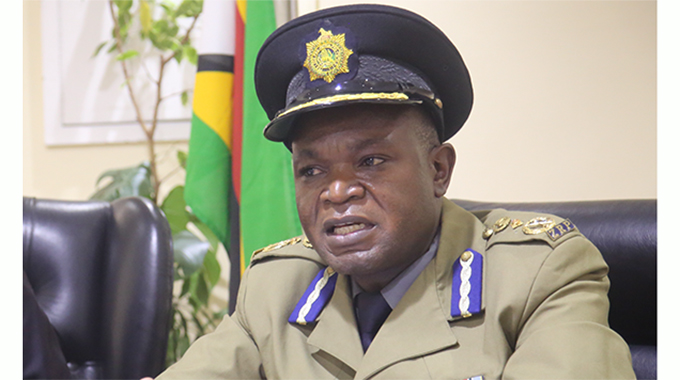Sexual abuse rife at varsities -Higher marks, access to food/accommodation main drivers


Female Students Network executive director Mrs Evernice Munando (left) and programmes officer Mrs Yvonne Mudapakati give oral evidence before the Parliamentary Portfolio Committee on Women Affairs, Gender and Community Development yesterday. – (Picture by John Manzongo)
Zvamaida Murwira Senior Reporter
At least 74 percent of female students in tertiary institutions have been subjected to sexual harassment by male lecturers, non-academic staff and security guards in return for higher marks, access to the campus and food, legislators heard yesterday.
Female Students’ Network Trust programme director Mrs Evernice Munando said a baseline survey conducted by her organisation showed that 85 percent of respondents knew of students who aborted unintended pregnancy while on campus.
Mrs Munando said this while giving oral evidence before the Parliamentary Portfolio Committee on Women Affairs, Gender and Community Development chaired by Goromonzi West legislator Cde Beata Nyamupinga (Zanu-PF).
The survey was conducted in 2015 in universities, polytechnics and teachers’ training colleges covering 10 institutions that included 3 425 students and staff.
“It confirmed the students’ claims that gender based violence and sexual harassment were rampant on campus, particularly sexual harassment of female students by male lecturers, fellow male students, non-academic male employees and security guards,” said Mrs Munando.
She said the environment at Midlands State University in Gweru exposed students to abuse, particularly given the fact that accommodation was not only scarce, but expensive.
“We are worried with MSU where there are also various campuses that expose students to harassment,” said Mrs Munando. “There is Zvishavane campus where there are miners who might prey on them.
“There is need for sexual harassment policies in order to create a safe learning environment for the girl child. Only four institutions had a sexual harassment policy in place and the fifth one had a draft. We realised that in religion-based institutions, it was difficult for female students to report issues on sexual harassment because of how it was interpreted in terms of their religion.”
Mrs Munando called for clear and enforceable sexual harassment policies such as subjecting perpetrators to disciplinary action at the tertiary institutions.
Giving an outline on the baseline survey, FSN programme officer Ms Yvonne Mudapakati said of the 2 114 female students who participated through the questionnaire, 94 percent reported having encountered sexual harassment compared to 3 percent of the 672 male students.
“Of the 1 987 female students who had encountered sexual harassment, 16 percent of female students said they had been raped by male students and 5 percent had been raped by male lecturers and non-academic staff; 13 percent of female students reported date rape in relationships with older men like lecturers and non-academic staff and 46 percent in relationships with male students,” she said.
“At least 16 percent reported having been forced into unprotected sex in sexual encounters with lecturers; 10 percent in sexual encounters with non-academic staff and 43 percent with male students, 32 percent of female students reported having been coerced into drinking alcohol or injecting drugs by older men like lecturers and non-academic staff during date outings and thereafter sexually assaulted. At least 48 percent of female students reported the same during date outings with male students.”
Ms Mudapakati said at least 42 percent of female students reported that they had received money or gifts in exchange for sex in the last year.
It was also observed that during focused group discussions, men said after having “invested” in female students they would resort to violence if their partners refused to have sex with them or had sex with someone else.
At least 67 percent of female students said they experienced unwanted physical contact like touching, patting and hugging by lecturers, non-academic staff and students.
“At least 93 percent experienced inappropriate remarks about their gender and sexuality, including sarcastic criticism of their weight, body parts such as breasts and buttocks, skin complexion, hairdo, cosmetics, dressing by mostly male students,” said Ms Mudapakati.
“At least 91 percent encountered wolf whistling – and of the 672 male students who completed the questionnaire, 90 percent reported having wolf whistled at a female student.”
It was also noted that at least 94 percent of female students who experienced gender based violence and harassment said they would not report to the authorities.
“About 63,5 percent said they had disclosed to someone like family member, friend, intimate partner, roommate, fellow church member,” said Ms Mudapakati.
It was noted that both male and female students said that male lecturers viewed sex with female students as part of their supplementary job benefits.










Comments